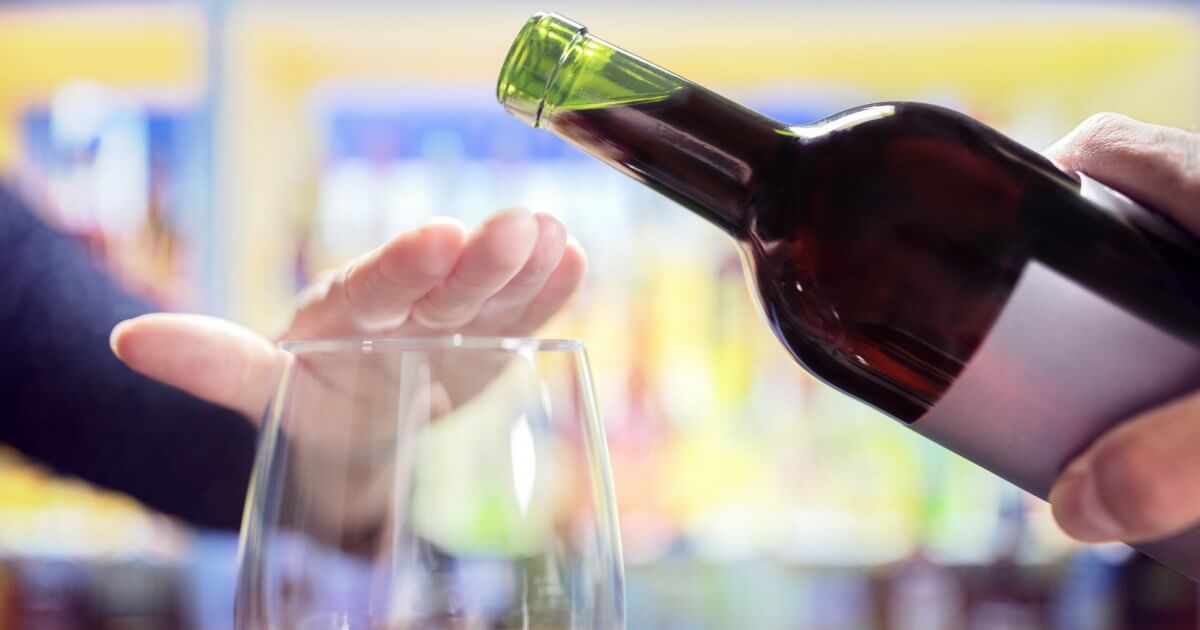Can I Prevent Drinking-Related Breast Cancer Risks?
- The World Health Organization is advising people to cut back on their alcohol consumption to "greatly" reduce the risk of developing breast cancer.
- Breast cancer is the type of cancer most frequently caused by alcohol consumption among women around the world; about 1,579 women are diagnosed every day.
- Can a person prevent alcohol-related breast cancer risks? Simply put, no. There's no safe level of alcohol consumption, according to WHO.
This can be hard to hear for all you wine drinkers out there, but cutting back on alcohol may just do the trick. (It actually doesn't matter what type, quality or price the alcohol is.) Even one drink per day increases a woman's risk of breast cancer.
Read More#Alcohol is a major risk factor for breast cancer! Even one drink per day increases the risk of breast cancer.
Avoid alcohol consumption to reduce the risk of cancer & read more here 👉 https://t.co/nIhyaLI2uG#BreastCancerAwarenessMonth pic.twitter.com/KSxbwaoTdPWHO/Europe (@WHO_Europe) October 20, 2021
Related: Alcohol Can Cause Cancer So Why Don't Beer, Wine, Whiskey and Other Booze Labels Warn Us?
Cancer's Relationship With Drinking
The American Cancer Society reports that alcohol consumption can increase your risk for various types of cancer. When it comes to cancers of the mouth, throat, voice box and esophagus, for example, alcohol "clearly" increases a person's risk. That being said, the ACS notes that drinking and smoking together puts you at a much higher risk for these cancers than drinking or smoking alone. But when it comes to drinking alcohol, a person's risk of breast cancer is lurking in the shadows.
Alcohol Can Increase the Risk of Developing Breast Cancer
As WHO notes, there's a clear link between breast cancer and alcohol consumption. In November 2017, the American Society of Clinical Oncology published a statement citing evidence that links alcohol to multiple cancers and calling for reduced alcohol consumption as a way to cut people's cancer risk.
However, many women recently said they had been drinking more during the Covid pandemic, and 70% weren't aware of the resulting increased cancer risk. And a WHO Europe officer is echoing this finding.
"Many people, including women, are not aware that breast cancer is the most common cancer caused by alcohol among women globally," says Dr. Marilys Corbex, senior technical officer for non-communicable diseases at WHO in Europe. "People need to know that by reducing alcohol consumption, they can reduce their risk of getting cancer."
In fact, earlier this year, some new and powerful evidence was published showing that drinking alcohol significantly increases cancer risk. The new research suggests that 4% of global cancer cases in 2020 were attributable to alcohol consumption.
According to the study published in The Lancet Oncology, in 2020, more than 700,000 new cases of cancer worldwide were attributable to alcohol consumption.
The majority of the cancer cases in the study attributed to alcohol consumption (189,000 cases) were esophageal cancer cases. The second highest was liver cancer (154,000), and the third highest was breast (98,300) close to WHO's estimate of 100,000 breast cancer cases.
Can I Prevent Drinking-Related Breast Cancer Risks?
Simply put, no. There's no safe level of alcohol consumption, according to WHO. The risk of breast cancer increases with each unit of alcohol consumed per day.
Does Alcohol Impact the Risks for Colon and Other Cancers?
"Simply put, alcohol is toxic," says Dr. Carina Ferreira-Borges, acting director for non-communicable diseases and programme manager for alcohol and illicit drugs at WHO in Europe. "It makes perfect sense to limit the amount of consumed alcohol, to find ways to replace alcohol with other beverages and to adopt nationwide policies that help to reduce alcohol consumption."
However, Dr. Comen says she recognizes that the public has been getting mixed messages about alcohol. "In some instances," she says, "we (doctors) say that drinking wine might be good for the heart, and we don't necessarily offer great specific guidelines about how much alcohol is safe to drink."
Dr. Comen's advice isn't necessarily to stop drinking, she just wants people to think about moderation and own the decisions they make. "If you want to have absolutely no risk from alcohol, then don't drink at all," she says. "But probably having less than four glasses a week of alcohol is probably OK."
Contributing: Abby Seaberg
Learn more about SurvivorNet's rigorous medical review process.


